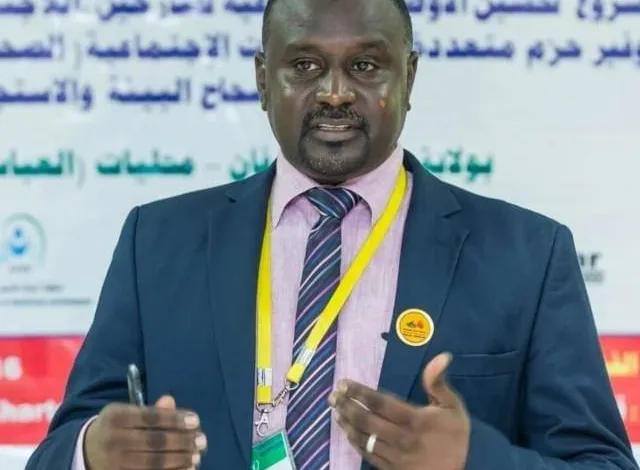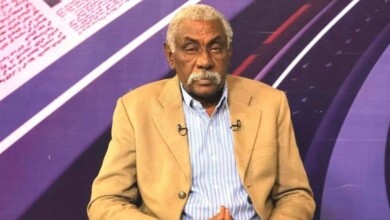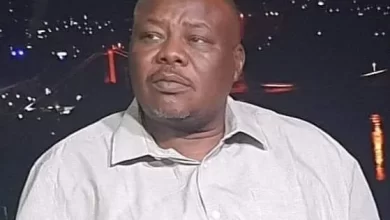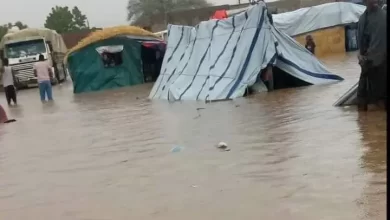Is “SAF” one of the reasons for the outbreak
and continuation of the Sudanese wars? (1- 2)

Dr.. Ismail Haggana
In Sudan, the Sudanese Army plays a pivotal role in shaping the course of political and economic events. Rather, it has turned into a political organization, at best protecting its interests and the interests of those allied with it, if not a front and military faction for some tribes in Sudan.
The Sudanese Army, with its unbalanced leadership composition, is considered a major reason for the continuation of wars in various regions across Sudan. For many years, the Army has insisted on the continuation of conflicts and has strongly rejected every call to stop them, which raises serious questions about the real reasons and motives behind the exhibited insistence and stubbornness.
Pressing questions have always been asked, but many are afraid and even avoid delving into them under the pretext of being related to national security. In reality, it’s not about national security, but more out of fear of oppression and abuse, fear for interests, and due to the scarcity of information. The pressing questions that I am attempting to discuss here are, but not limited to the following:
Can we consider the Sudanese Army to be an organized militia that serves the interests of specific ethnic groups and segments ? Does the Army, in cooperation with the National Security and Intelligence Service and the Sudanese Police Force, hold the reins of control over the State almost absolutely, including control over the economy ? Has this control affected the balanced development in the country and was it a cause of Sudan’s wars and their continuation ?
In order to answer such questions, we must take a deep dive and analyze the reality of the Sudanese Military establishment, and dismantle the pillars of control and influence within it.
Through my analysis of the information available to me, the data indicates that the Army is more than just a national defense institution, as everyone keeps telling us! Which raises further pressing questions, including: Is it a military wing that dominates the State for the benefit of certain ethnic groups ? Is this control achieved through an unfair distribution of leadership positions ? Is power concentrated in the hands of individuals from certain regions and tribes ? How does this reinforce divisions and fuel conflicts ? Does this group, which benefits from dominance over the Army and other security institutions, seek to maintain its dominant position at any cost, even if that means the continuation of wars and conflicts ?
In this article, I am attempting to provide an objective presentation and analysis based on facts and the latest statistics that I obtained, in an attempt to answer the aforementioned questions. By analyzing these dynamics and the fine details of the leadership composition in the Sudanese Army, we can understand the deeply rooted reasons for the continuation of conflicts, as well as the importance of re-establishing the Army on new foundations that express the entirety of the Sudanese population in addition to achieving justice and equality, to ensure a brighter and more peaceful future for Sudan.
An analysis of the latest list of Commanders of the (22) Divisions in the Sudanese Army
The distribution of leadership according to regions:
The Northern Region (Nile River and Northern state): 20 Commanders
The Central Region (Al-Jazeera, Sennar, White Nile, and Khartoum): 0 Commanders
The Eastern Region (Red Sea, Kassala, El-Gedaref, Blue Nile): 0 Commanders
The Western Region (North Kordofan and the five states of Darfur): 1 Commander
Southern Region (South Kordofan and West Kordofan): 1 Commander
Key points of analysis:
Regional Hegemony:
The Northern Region controls the vast majority of Divisions leadership, as there are (20) Commanders from this region alone. This highlights the concentration of influence and power at the hands of individuals from the North, reflecting a blatant imbalance in the distribution of military leadership.
Regional exclusion:
The Central, Eastern and Western regions do not have any representation when it comes to Divisions leadership. This indicates a clear marginalization of these regions, which could breed a feeling of injustice and exclusion among the residents of these regions.
The Southern Region: There is only one representative from the Nuba, whereas the Nuba people are made up of (99) various indigenous ethnic groups as well as mountains.
Tribal Diversity:
There is a clear repetition of some tribes in the list of Commanders, such as the Shaigiya and Ja’alin tribes. For example, out of (22) Commanders, there are (14) Shaiqi and (4) Ja’ali. Which doesn’t only indicate a lack of diversity in leadership positions, but rather a premeditated monopoly.
Other tribes such as the Masalit and Nuba are represented by two appointments, highlighting the inequality in granting opportunities for the entirety of more than (500) other tribes in Sudan.
When we state that this institution is corrupt and doesn’t represent all Sudanese, we literally mean what we say. We can clearly observe that the dominance of a certain group over the reins of governance in Sudan doesn’t reflect the diversity and justice that the Sudanese people, with all of their components, deserve.
Therefore, when we demand the re-establishment of this institution on new foundations that represent all Sudanese, regardless of their tribes and regions, its because we know for certain the dangers such practices place on the national security and safety of the citizens in Sudan.
Let’s carefully consider the aforementioned list, where is justice and equality ? The current control over the Army, and thus over the reins of the government in Sudan, doesn’t necessarily reflect the will of the Sudanese people combined, but rather the dominance of a specific group.
It’s necessary to put forth efforts in rebuilding this institution to truly represent all Sudanese people, expressing their aspirations for security and peace, without being a permanent gateway for the Sudanese people’s problems.
Through our tireless pursuit of justice and equality for everyone, we must work impartially and selflessly to reconsider this institution, making it more supportive than an obstacle. Only then can we ensure a brighter and more just future for Sudan, where everyone has equal opportunities, and corruption and nepotism are eliminated, paving the way towards a Citizenship State characterized by justice, equality, freedom and peace.
In conclusion to the aforementioned information, we can safely state that the Army was clearly one of the most prominent reasons for the outbreak and continuation of wars in Sudan, along with other reasons that are no less important. Among these reasons, the Sudanese Army comes into play with its unbalanced composition of leadership, where leadership positions are dominated by individuals from certain tribes and regions.
This hegemony reinforces the feeling of injustice and exclusion among the inhabitants of other regions, leading to escalation of tensions and conflicts, which reduces the chances of peaceful coexistence and peace.
The concentration of power in the hands of a certain group reinforces divisions and fuels conflicts, as it seeks to maintain its dominant position at all costs, even if that means the continuation of wars. The group that benefits the most from this hegemony seeks to preserve its gains and privileges by ensuring continued control over the Army and other security institutions.
The Sudanese Army and the structural defect inherent in its leadership structure plays a major role in the outbreak and continuation of wars in Sudan. This correlation is demonstrated by several key factors:
Ethnic and Regional Hegemony:
The concentration of power in the Army at the hands of individuals from specific tribes and regions, such as the Shaigiya and Ja’alin tribes, according to the statistics mentioned above from the Northern Region. Naturally this serves to magnify the feeling of injustice and exclusion among other regions and tribes.
This unequal distribution of power exacerbates social and political tensions, leading to the outbreak of conflicts.
Lack of Fair Representation:
The Central and Eastern regions lack any leadership representation in the Army, which exacerbates the feeling of marginalization of the residents of these regions. This feeling of injustice is because the military has historically been in power for more than (50) years and this can push local communities to rebel and disobey as a way to express their grievances.
Reinforcing Social Gaps:
Overrepresenting certain tribes in leadership positions reinforces privileges based on historical and tribal relationships, rather than competence and experience. This creates significant gaps between the various components of the Sudanese society, and reinforces ethnic and regional divisions.
Taking Advantage of Conflicts:
The group that dominates the Army and Security Institutions seeks to maintain its dominant position and benefit from ongoing conflicts. Continuing wars could be a way for this group to maintain its position of power as well as economic and political interests.
The Army failed to achieve Security and Stability:
By focusing on protecting the interests of a particular group, the Army is failing in its primary role as a protector of national security and stability. Instead, the Military Institution becomes a factor causing and fueling conflicts, a hindrance for efforts to achieve peace.
The correlation between the Army and the structural imbalance in the Sudanese State, as well as in the composition of its leadership, are among the decisive factors in the outbreak and continuation of wars in Sudan. To achieve peace and stability in the country, it is necessary to re-establish the Army as a national, professional institution that reflects the entirety of Sudan and achieves justice and equality among all components of the Sudanese society. Only through this reform can we overcome our turbulent history and establish a much more stable future.
To be continued …..




